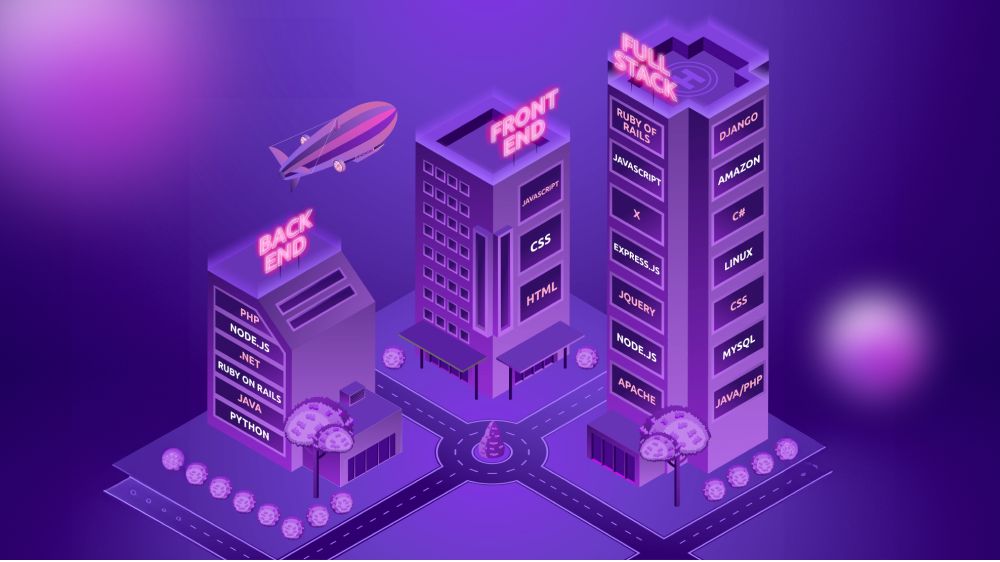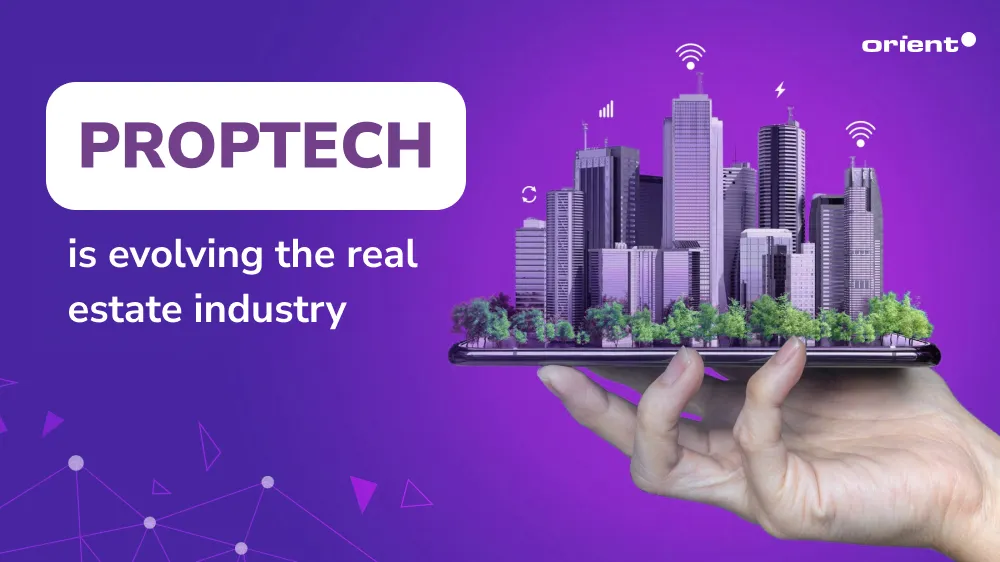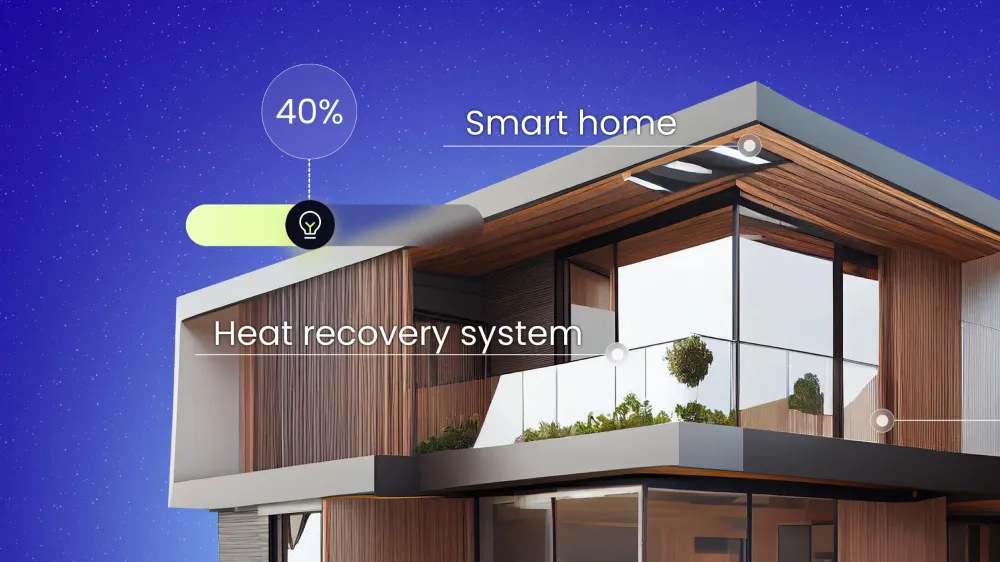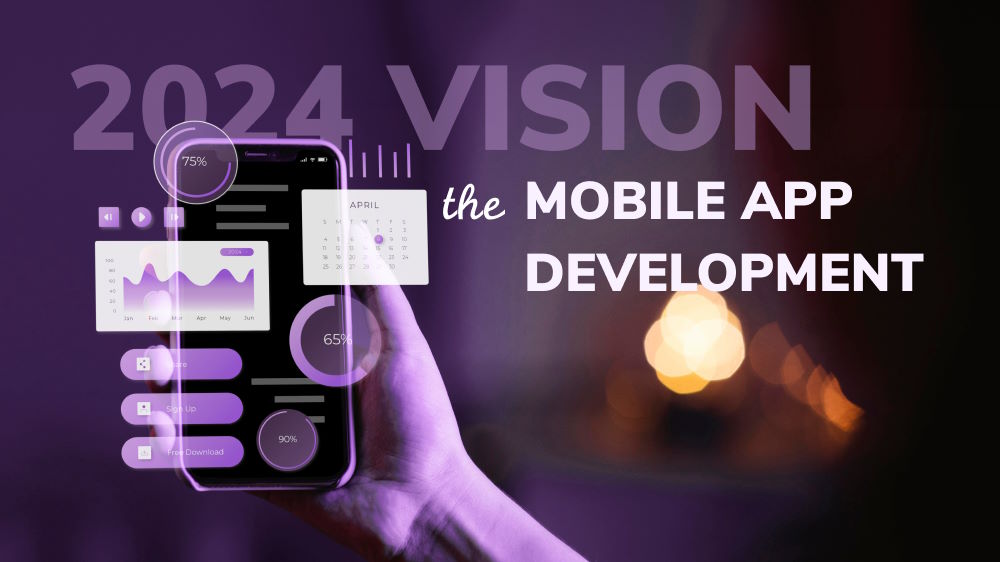
How Proptech Is Evolving the Real Estate Industry

Content Map
More chaptersReal estate companies have been using technology since the 1980s. The advent of personal computing as well as spreadsheet and accounting software made it possible to perform various realtor duties on desktop machines.
Fast forward to today, and proptech, short for property technology, has become a catch-all phrase to encompass all technology that realtors, landlords, tenants, and investors use to buy, sell, and manage property.
But what exactly is proptech, and how are real estate professionals using it? Read on to find out. And learn how to incorporate proptech into your business.
What Is Proptech?

Proptech is a technology that realtors, landlords, investors, and tenants use to buy, sell, and manage properties. These range from property listing websites, where home buyers and renters search and apply for viable homes, to property management apps, where tenants submit maintenance requests online.
Proptech also encompasses areas outside of conventional real estate. These include shared property platforms like Airbnb, where property owners lease out all or a portion of their property to guests for a set period and companies that specialize in virtual reality (VR) and augmented reality (AR) solutions for real estate applications.
What Are the Different Types of Proptech?

There is a wide range of proptech being used in real estate today. These solutions help support different areas of real estate, from residential to commercial to industrial. Here is a detailed breakdown of the different proptech solutions out there.
Property Listing Platforms
Listing websites have property management tools to help people buy, sell, and lease property on a single platform.
Sellers and landlords list their properties on the platform with detailed descriptions and photos, while potential buyers and renters use filtered search to find their dream homes to live or invest in.
Some property listing platforms specialize in off-market buying and selling, where users must register to unlock property details.
AI and Machine Learning
Artificial intelligence and machine learning can help streamline and automate various back-end realtor activities.
Services like Listing Copy AI let you produce persuasive AI-generated property listings, social media posts, and bespoke email clients. You can select options to help customize your prompts based on target audience persona, copywriting style, and tone, ensuring each message is personalized and relevant to your goals.
Insurance companies leverage AI-driven insights from real estate databases to evaluate the risk of fire, theft, and natural disasters in residential and commercial properties. By analyzing historical data, insurance companies can calculate premiums based on past trends and patterns.
Virtual Reality and Augmented Reality
Virtual reality and augmented/mixed reality are emerging technologies in real estate. The most popular use of VR in real estate is property showcases. Customers wear VR headsets to browse and interact with virtual recreations of real-world properties, allowing potential buyers and investors worldwide to attend remote inspections.
Meanwhile, augmented and mixed reality can enhance in-person inspections and renovation projects.
While attending an in-person inspection, the realtor can use a smartphone or tablet to virtually project context-sensitive visualizations on the screen – for example, a virtual representation of furniture in an empty room.
Property owners and investors can use augmented reality to visualize a renovation before the work begins. Then, they can request changes until the result matches their vision. This benefits builders, too. They reduce the risk of costly and lengthy delays while ensuring customer satisfaction.
Chatbots
Real estate chatbots are virtual assistants that respond to inquiries from buyers, sellers, and renters.
By using pre-written scripts or generative AI, chatbots can simulate conversations and automate repetitive tasks. They can collect the contact details of potential leads, book appointments, accept rental applications, and update buyers and sellers on the status of a sale.
Chatbots help real estate companies save time and money in responding to repetitive inquiries. This gives realtors more time to focus on more personalized tasks, such as hosting property viewings and consulting. Customers also benefit from a rapid, 24/7 response time.
Best of all? The cost to build a chatbot is surprisingly affordable, starting as low as $5,000.
Sustainability
Sustainable real estate is designing and building properties with as little environmental impact as possible. This means installing eco-friendly energy alternatives like solar power panels to reduce electricity bills and carbon footprints.
It also means using sustainable building materials, such as recycled wood and clay, to reduce unnecessary building waste. 600 million tons of construction and demolition debris was recorded in the U.S. in 2018, according to the Environmental Protection Agency (EPA).
Real estate owners can use energy monitoring software to identify and address energy inefficiencies. They can install IoT sensors on individual devices and throughout buildings to monitor operational performance, air quality, energy wastage, and consumption trends.
Construction companies can use sustainable construction software to reduce building waste and decrease costs. They can track their use of materials and utilities (water, gas, electricity) on construction sites. During and after project completion, they can review the historical data and optimize resources for future projects.
What Are the Advantages and Disadvantages of Proptech?

There are many advantages and disadvantages to using real estate technology. These apply to home buyers and sellers, renters, real estate professionals, commercial real estate investors, and builders.
Advantages of Proptech
The main advantages of proptech are that it helps:
Simplify Realtor Activities
Proptech helps streamline and automate various realtor activities. These include screening potential clients, drafting, signing, and renewing leases, maintaining properties, and much more. Shared property hosts can use proptech to create property listings, manage bookings, and handle inquiries.
Proptech can also streamline back-end processes like accounting, analytics, and customer relationship management (CRM). With custom real estate CRM software development, realtors can automate property tracking, capturing leads, and booking appointments.
Improve the Customer Experience
Customers benefit from the use of proptech in many ways. Potential buyers and renters can use property listing platforms to search for homes based on price, location, and details like the number of rooms. This makes it easier for customers to find homes that meet their needs and budget.
Realtors can use proptech to help customers during the property buying, selling, and managing process. Renters and buyers can attend virtual property viewings using video apps, pre-recorded videos, or exploring 3D recreations in virtual reality. They can also review and sign documents online through their web browser.
Meanwhile, tenants can use mobile apps to submit maintenance requests with detailed descriptions, photos, and videos. Plus, they can receive progress updates from realtors and tradespeople until the work is complete.
Challenges of Proptech
Some of the many challenges of proptech include:
Integrating With Older Systems
Integrating new proptech into legacy systems can be challenging and requires extensive planning. Using multiple, disconnected property management platforms can lead to siloed data, making it harder for teams to collaborate and make informed decisions.
The key to a successful proptech integration is to first understand your existing technology stack. Legacy real estate systems may include locally installed office productivity software, databases, and anti-virus software.
Companies like Orient Software can review your existing tech stack, along with your business model and market. Our dedicated software teams can anticipate potential integration issues, too. For example, we can perform data cleaning and standardizing, retaining data integrity and accuracy post-integration.
Then, we can form a team and roadmap, one that aligns with your proptech integration needs. This way, you get the assurance that the right people – who understand your proptech and business needs – are on your project.
Staff Resistance
Some real estate professionals may resist the idea of using new proptech solutions. They may be concerned about cloud security and privacy, learning a new user interface, and productivity loss due to training.
To help alleviate these concerns, make staff training key in your proptech integration journey. Clarify why the new software is being introduced and explain its business benefits. Give your team a platform to share feedback, as this may help ease any concerns.
Decide if your training program will be self-taught or expert-led. Ensure the learning materials are easy to read and understand – especially for non-tech experts. And implement a system to monitor progress, assist struggling learners, and conduct repeat training sessions.
Best Practices to Follow When Choosing Proptech Solutions

Choosing the right proptech solutions for your business is vital to increasing productivity and customer satisfaction. Here are some best practices to follow:
Determine Business Goals
Identify your existing pain points. Then, decide what proptech you need to address them. A real estate agency struggling with manual rent collections can boost productivity with automated digital rent payments.
Research Vendors
From there, research potential proptech companies. Evaluate each vendor’s ability to satisfy your unique requirements. These include reviewing their key features, customer support, scalability, privacy and security measures, and compliance standards. Read testimonials to learn about user’s experiences too.
Seek Third-Party Support
You can also speak to a software development company like Orient Software to assist with your proptech integration journey.
We can help you choose and incorporate the most suitable solutions into your proptech stack. Also, as part of our software outsourcing services, you gain access to specialized skills that may be hard to find in your local market.
Elevate Your Business with the Latest Proptech
Embracing the latest proptech is vital to succeeding in the commercial real estate sector. However, choosing and integrating the right solutions into your business can be tricky, especially if you lack the in-house resources and technical knowledge.
At Orient Software, our 350+ skilled and motivated team has completed over 200 projects. We are dedicated to helping the key players in the residential and commercial real estate industry overcome the toughest technological challenges and achieve their goals.
Contact us to see how our software development services can help your business grow.






